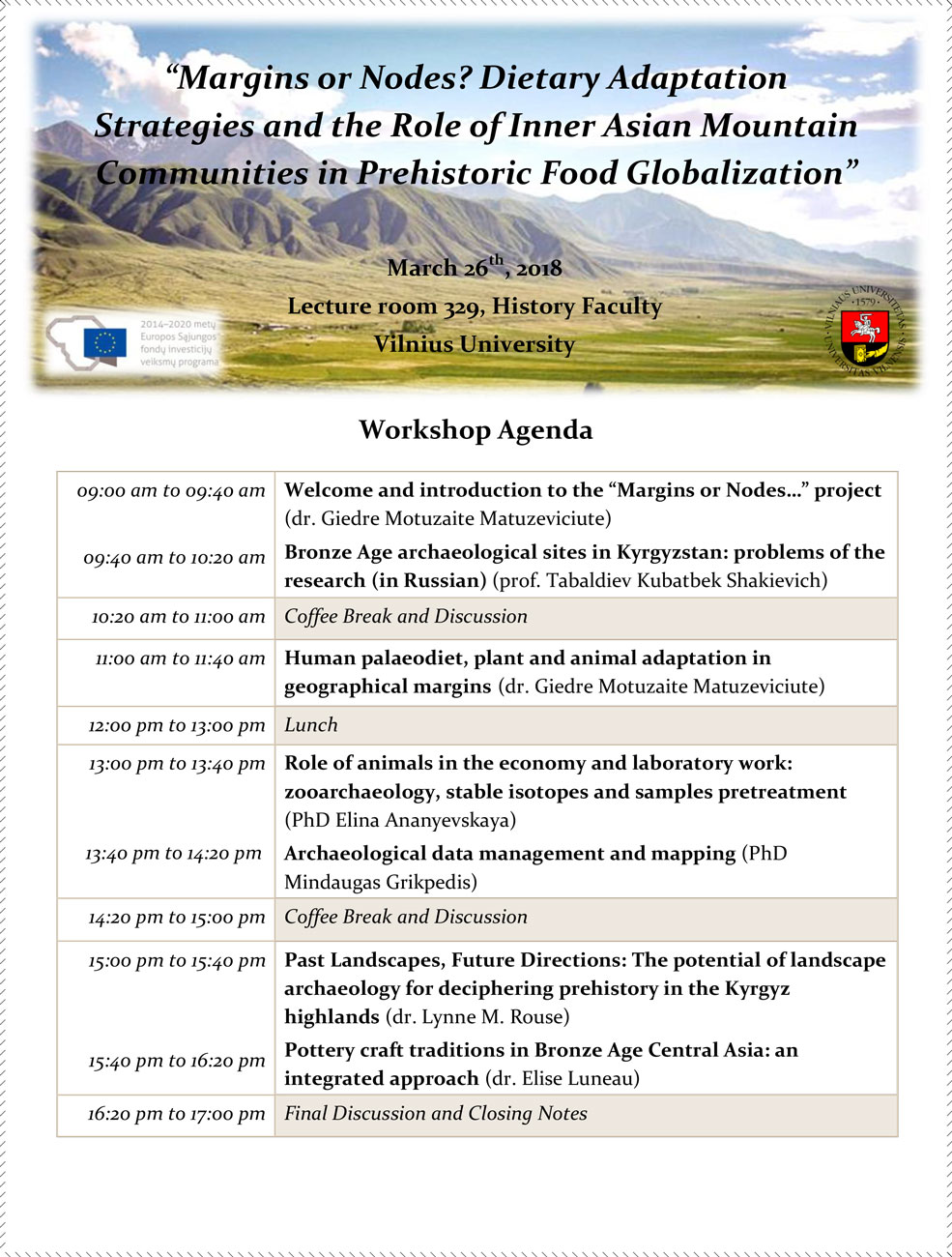PhD position in palaeoproteomics to study the history of millet cultivation
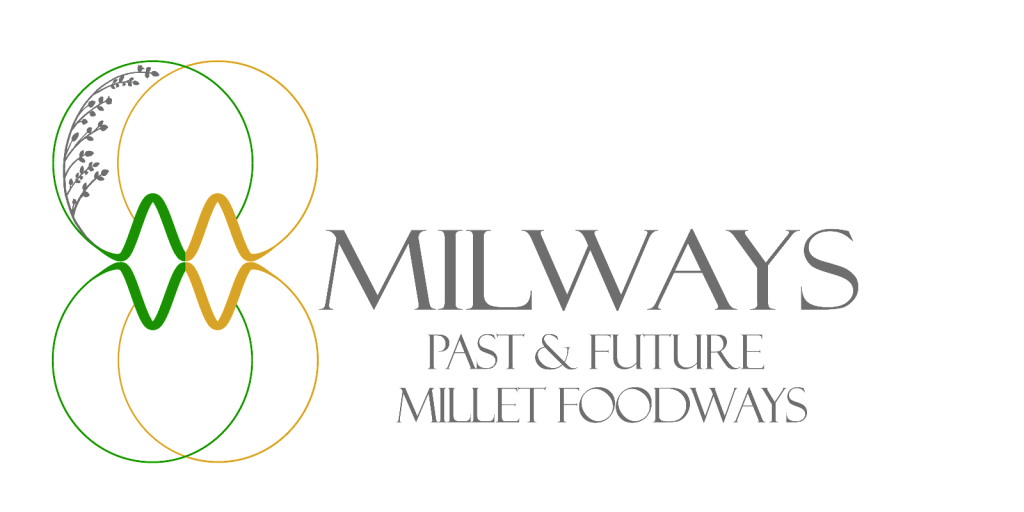
We invite to apply for a funded, full-time PhD position of 42 months duration under the ERC Consolidator Grant (101087964) project led by Prof. Giedre Motuzaite Matuzeviciute Keen titled PAST AND FUTURE MILLET FOODWAYS (MILWAYS). The successful candidate will be based either at the Department of Archaeology, Faculty of History or at the Life Science Centre, Vilnius University. The work of the PhD student will be carried out between two laboratories: The Palaeoproteomics lab based at the Life Science Centre and at the Bioarchaeology Research Centre which is a part of Department of Archaeology. The project’s samples for analysis are located at various institutions of eastern, central and southern European countries. The PhD candidate would be required to travel to these institutions for material sampling purposes.
Upcoming events:
We are excited to announce that our MILWAYS teams are organizing EAA Session: #556 in Rome, on August 2024
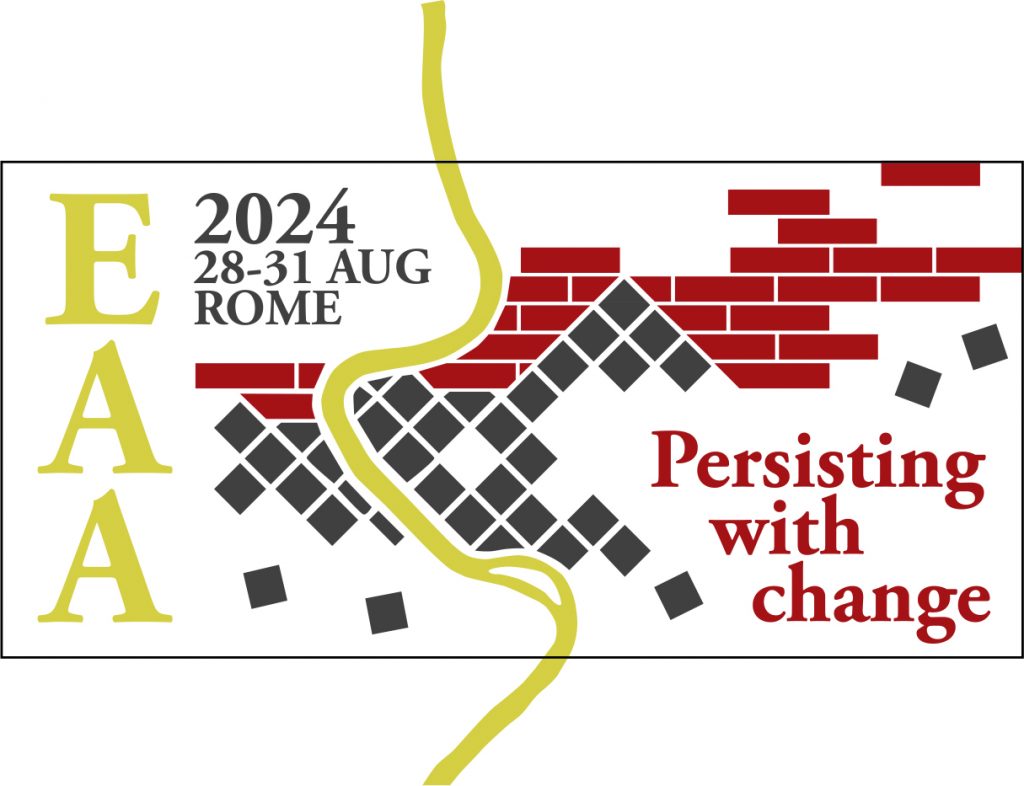
Theme:7. Archaeology of Sustainability through World Crises, Climate Change and War
Session format: Session with presentation of 6 slides in 6 minutes
“Exploring Ancient Solutions for Modern Challenges: Archaeological Insights into Food Systems and Adaptations to Changing Environments”
The world is facing intensified rates of adverse climate and environmental change, population growth, and food insecurity. However, challenges that face us today are not totally new and many past societies have struggled with similar issues. But perspectives from the past remain underutilized. In this context, studying human-environment interactions, subsistence strategies, and human and plant response to changing environmental conditions is the most obvious way for archaeology to contribute to the global quest for sustainable solutions to cope with current challenges.
In this session, we are seeking to put together interdisciplinary studies that investigate past food systems in the light of deteriorating paleoclimatic and paleoenvironmental conditions. We focus on two major directions:
1- Which methods, models, and datasets are actually suitable to investigate system changes (i.e., the introduction or abandonment of crops, a shift to new agricultural strategies)?
2- What are examples of past system changes and how can these contribute to current debate on food security and adaptation to changing environmental conditions?
Building on these two pillars, we would like to discuss perspectives in interdisciplinary palaeoenvironmental archaeology and archaeobotany.
We appreciate a balance between local, regional, and supraregional studies to integrate various spatial scales into the discussion. Diachronic studies are particularly welcome to investigate transformation processes over time.
Keywords:Archaeobotany, Bioarchaeology, Paleoclimatic conditions, Sustainable subsistence strategies, Adaptation, Food security
Organisers
Main organiser: Margaux Depaermentier (Lithuania) 1
Co-organisers: Michael Kempf (Switzerland) 2
Giedre Motuzaite Matuzeviciute Keen (Lithuania) 1
Robert Spengler, III (Germany) 3
Affiliations:
1. Vilnius University, Faculty of History, Department of Archaeology, Lithuania
2. University of Basel, Department of Environmental Sciences, Quaternary Geology, Switzerland
3. Max Planck Instiitute of Geoanthropology
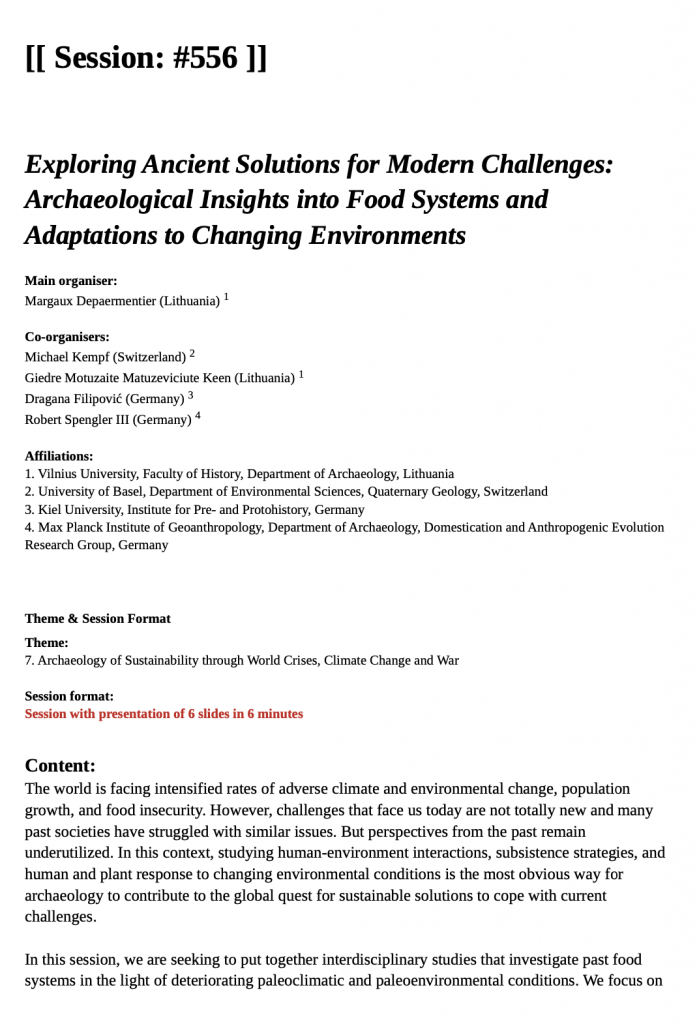
Past events:
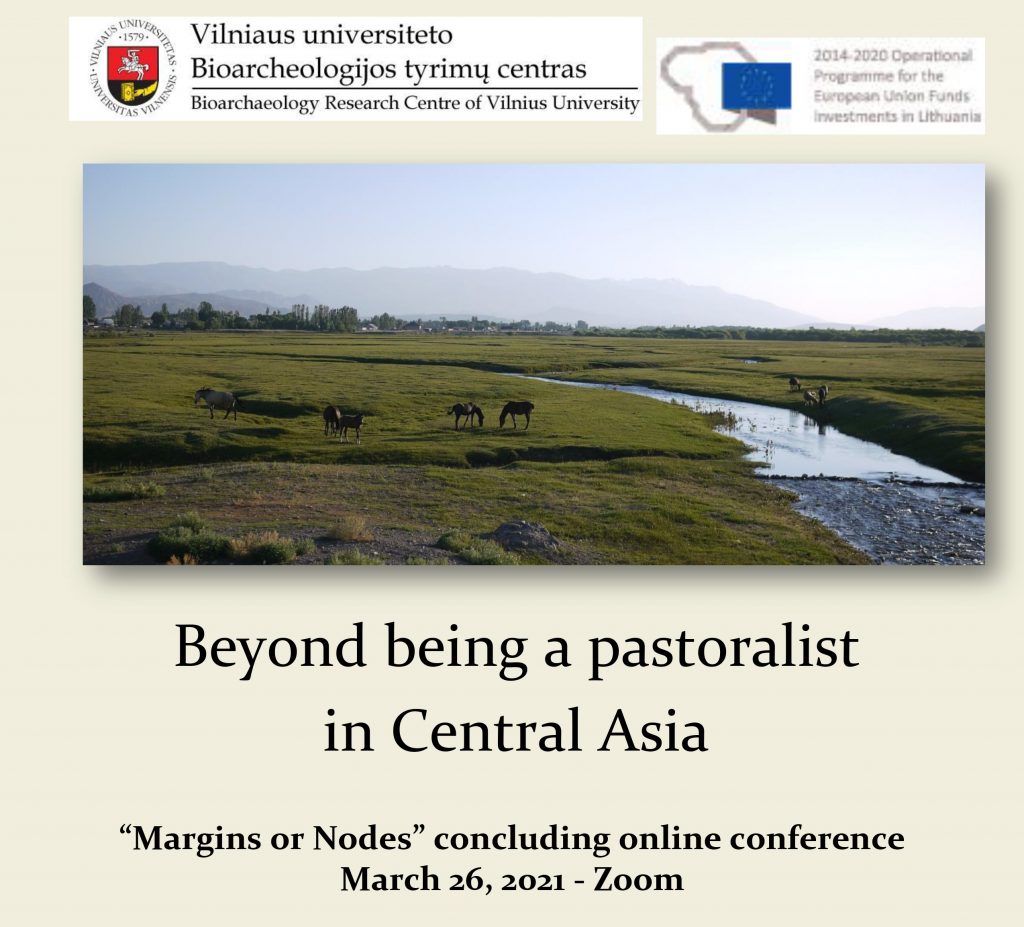
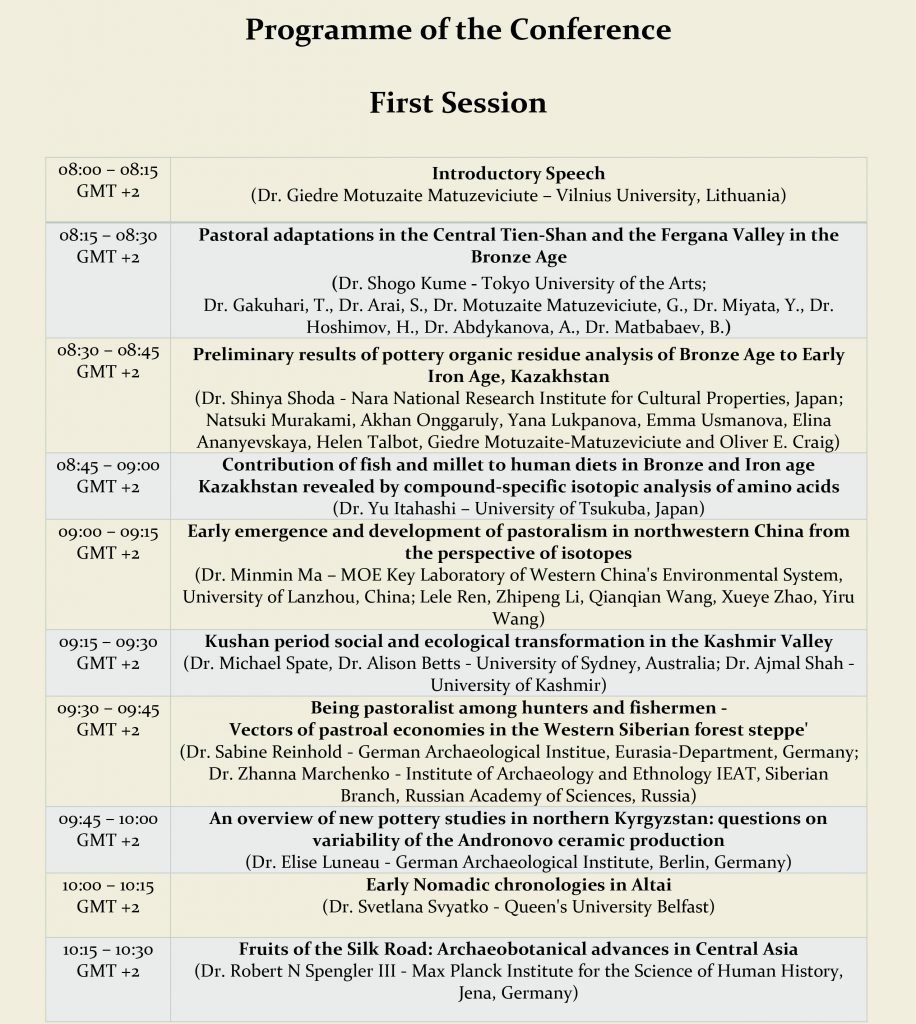
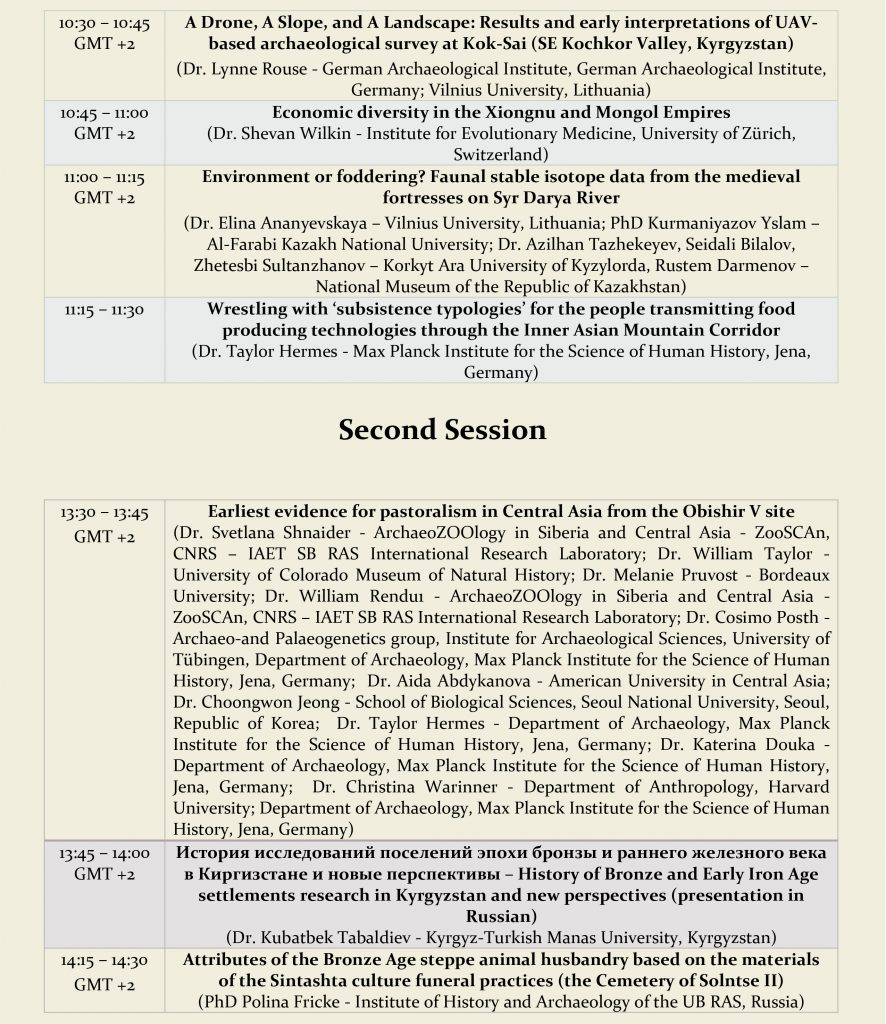
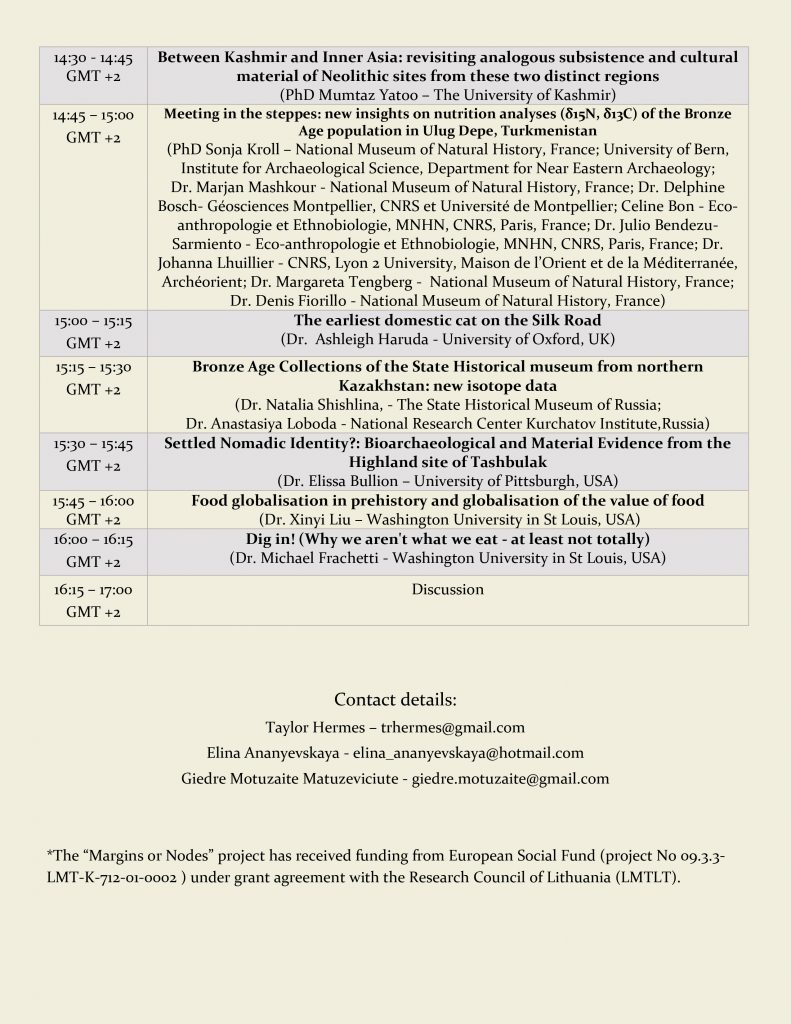

Beyond being a pastoralist in Central Asia: Revisiting the “nomadic narrative” with new research programs and cutting-edge archaeological methods
Margins or Nodes* project’s concluding conference March 26, 2021.
Organizers:
Taylor Hermes (Max Planck Institute for the Science of Human History, Germany & Vilnius University, Lithuania)
Elina Ananyevskaya (Vilnius University, Lithuania)
Giedre Motuzaite Matuzeviciute (Vilnius University, Lithuania)
Critical reconsiderations have recently emerged to the long-standing view that the vast, ecologically diverse region of ancient Central and Inner Asia was the domain of highly mobile pastoralists, or “nomads”, who subsisted exclusively on domesticated animal products. Repeated findings of a wide range of cereal macrobotanical remains from sites dating from the third millennium BC demonstrate that ancient communities here were entangled in a mosaic of dietary choices beyond herd animals. The increasing application of isotope analysis to human and animal skeletal remains further reinforces that Central Asian landscapes were characterized by diverse investments in plant cultivation, especially of the isotopically distinct C4 millets. Although this research collectively fuels important debate about the lifeways of ancient communities in Central Asia, we continue to lack a precise understanding of the breadth of subsistence engagements within and between diverse ecozones, how antecedent foraging strategies were transformed into a diverse array of foodways using domesticates, and how herding or farming production intensified in tandem with the formation of powerful polities and early states. Taken together, we face immense difficulty and contemplation in labelling the communities driving these processes. This session explores the theoretical and empirical basis of assigning a “subsistence identity” to communities located in Central, Inner Asia, and adjacent regions dating from the Eneolithic to the historical period in light of diverse methods of resolving human subsistence and mobility, in addition to novel analyses of material culture, settlement patterns, and architecture that illuminate the complexities of institutional domains and cultural dynamics. Papers in this online conference will present rigorous data collection and analysis of archaeological materials in order to provide new insights on subsistence, mobility, and everyday life that reshape how we understand community identity and interaction in the archaeology of the Eurasian steppes.
*This project has received funding from European Social Fund (project No 09.3.3-LMT-K-712-01-0002 ) under grant agreement with the Research Council of Lithuania (LMTLT).
If you are interested in a PhD or a Post-Doctoral research position, please contact giedre.motuzaite@gmail.com
International conference „Investigating Bones: Diet, Health, Environment in the Baltic Region“
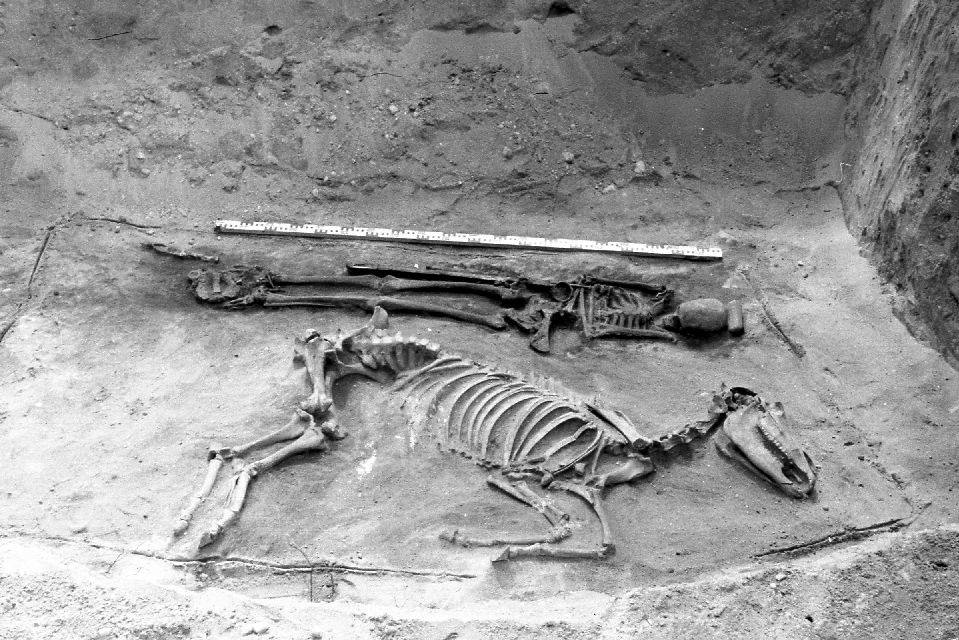
2019 October 4-5, Vilnius university Faculty of History (Universiteto g. 7, Room 321, 3rd floor)
The meeting will focus on an interdisciplinary approach to the bioarchaeology of human and animal remains. The objective is to present up-to-date bioarchaeological research results in a variety of areas: stable isotopes, migrations, paleopathology, epidemiology, forensic archaeology, mummy studies, and more. One of the meeting’s goals is to introduce the osteological material of the Baltic region currently available, thus providing all participants with an opportunity to evaluate these collections’ potential for future research. Therefore, this international meeting will provide colleagues from the Baltic region a unique opportunity to exchange ideas on various topics and to discuss diverse perspectives and possible future collaboration, including building on existing professional relationships. In addition to oral presentations, there will be a traditional “hands-on” session, a visit to the anthropological and zooarchaeological collections stored at Vilnius University, as well as an excursion to crypts. There is a possibility to publish the proceedings of this international meeting in the journal Archaeologia Lituana.
Photography exhibition. Food globalisation: from past to present. March 27 – April 29, Lithuanian national UNESCO commission gallery. Šv. Jono g. 11, Vilnius
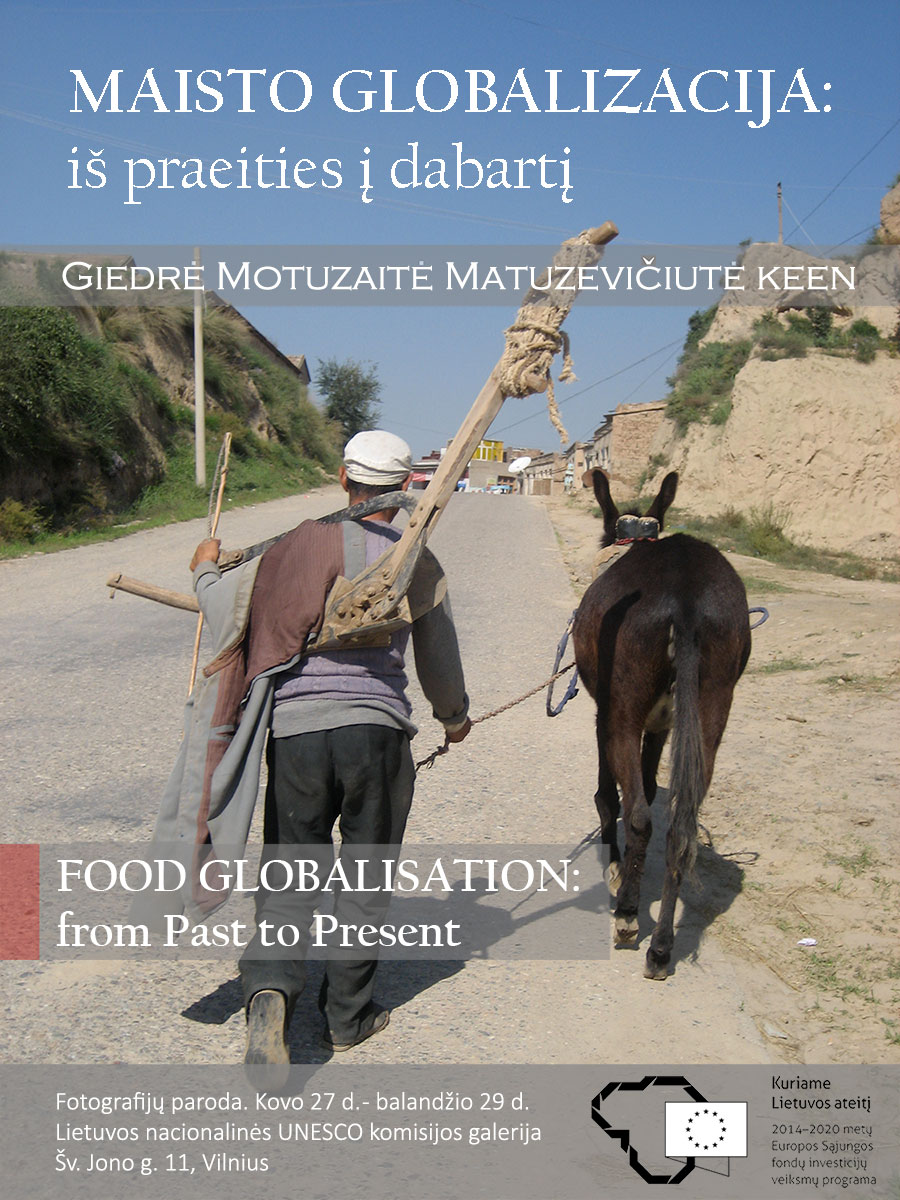
Mokslinis tyrimas finansuojamas Europos socialinio fondo lėšomis pagal priemonės Nr. 09.3.3-LMT-K712 veiklą „Mokslininkų kvalifikacijos tobulinimas vykdant aukšto lygio MTEP projektus.
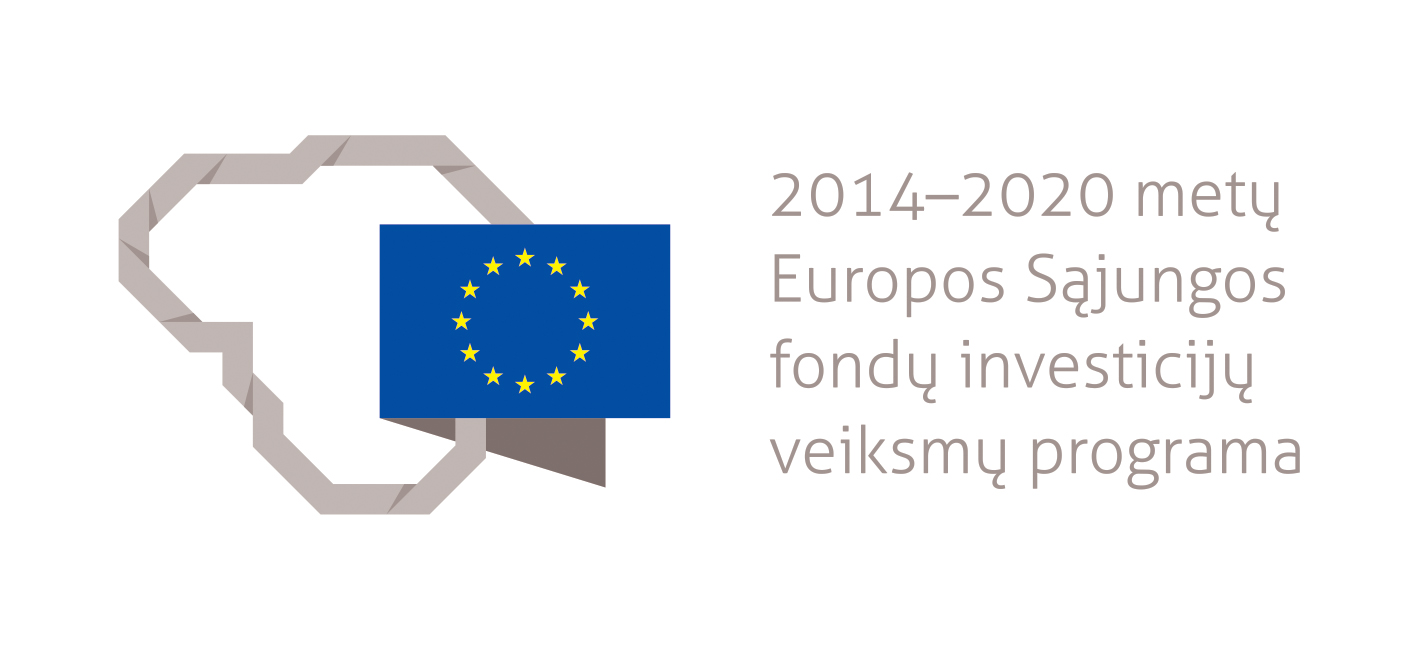
International Seminar on Archaeology of Central Asia, January 13-14, 2019. Vilnius university
Click here for detailed program of the seminar
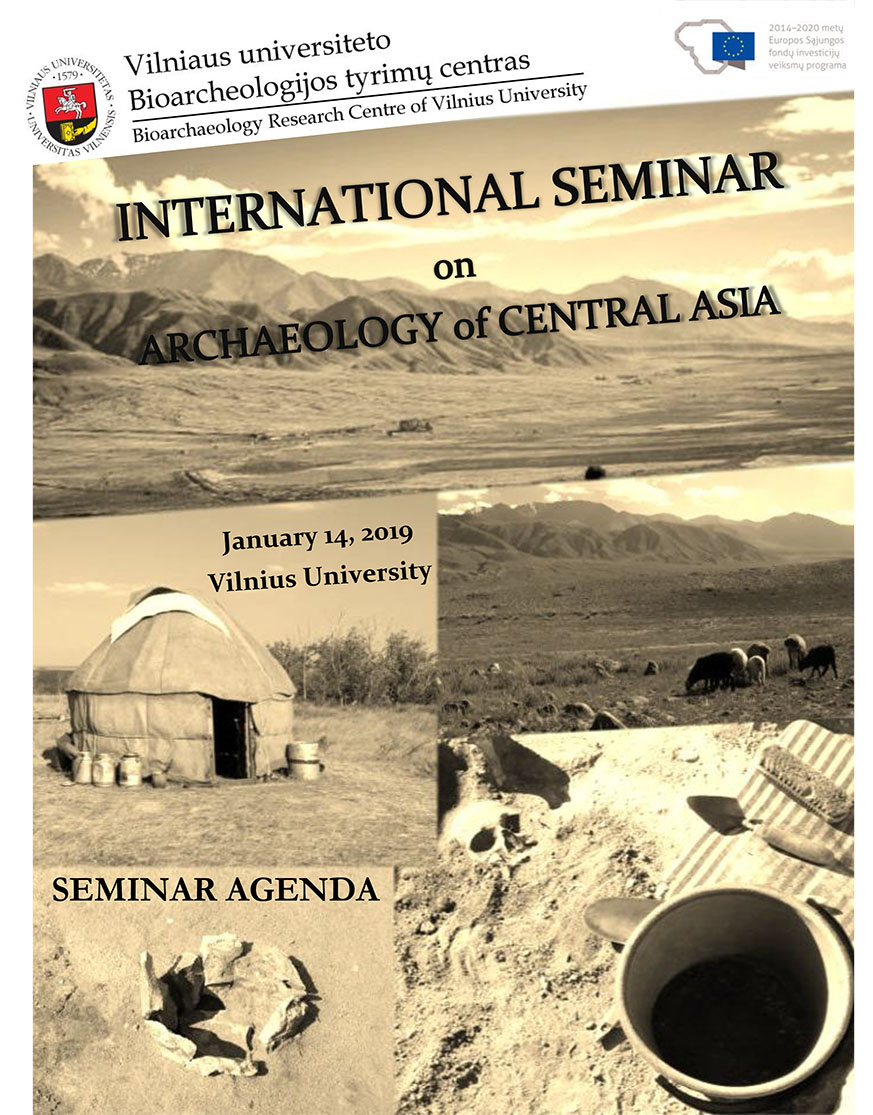
Workshop “Margins of Nodes? Dietary Adaptation Strategies and the Role of Inner Asian Mountain Communities in Prehistoric Food Globalization”. March 26, 2018. Vilnius university
